As a student from Indonesia, one of the world’s largest coffee producers, coffee has always been a big part of my life. In Indonesia, coffee’s popularity feels natural — it’s affordable, widely accessible, and serves as a great social drink, especially since many Indonesians avoid alcohol for religious reasons. When I came to Japan, I was surprised by how deeply coffee is woven into daily life here, despite the country’s strong traditions of tea and sake, and the elevated cost of coffee due to it being imported. From canned coffee in vending machines to university coffee clubs and artisan cafes, Japan’s coffee culture is incredibly diverse. It’s not just about the numbers — Japan is the largest coffee importer in Asia — but about the unique ways coffee brings people together, making it an essential part of my student experience in Japan.
After receiving the exciting news of my acceptance to Institute of Science Tokyo, I began preparing for my move to Japan. From previous trips, I knew about the strong appreciation for coffee in Japan, but I wasn’t prepared for the depth and variety of its coffee culture. Japan offers something for every coffee enthusiast. Even as a student on a budget, there are plenty of ways to enjoy great coffee.
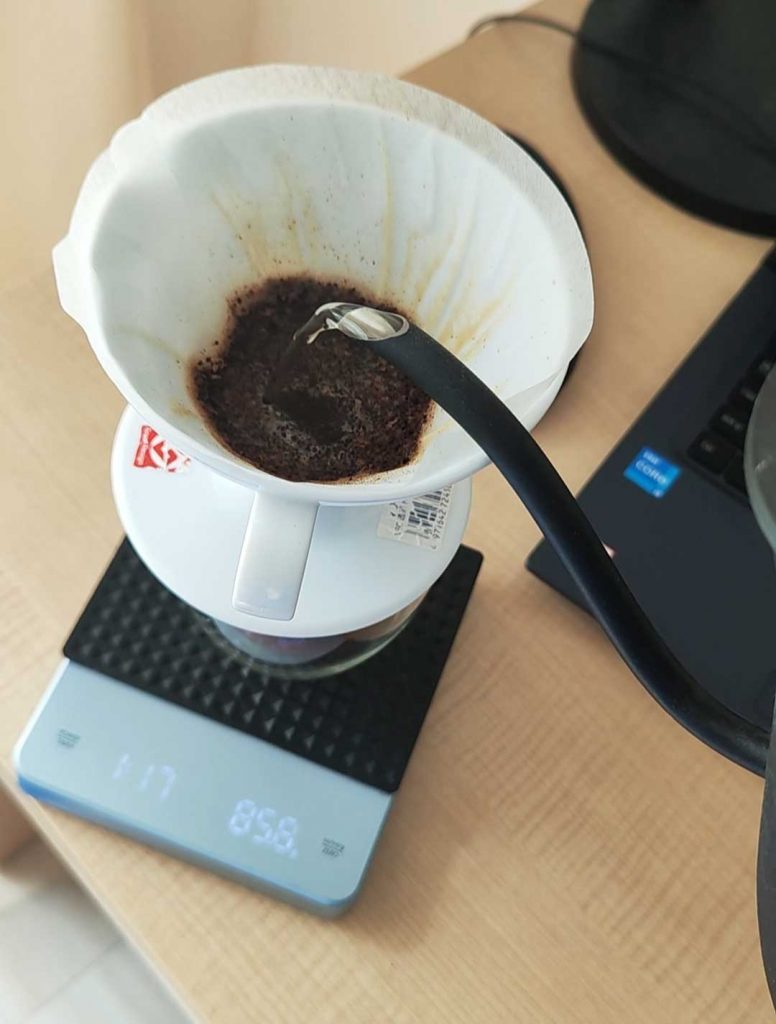
My journey into Japan’s coffee scene started with learning how to hand-brew coffee at home. In my opinion, this is the most affordable way to enjoy quality coffee, requiring just basic equipment like a coffee dripper, filters, and a kettle, all of which can be found easily here in Japan. Kaldi Coffee Farm, a popular store specializing in imported goods and coffee-related items, has branches across the country and offers a wide selection of beans at reasonable prices. For those looking for more unique and flavorful options, many small, independent coffee shops roast their own beans. While these are pricier, they provide a distinctive coffee experience. As for coffee equipment, Japan’s own brands, such as Hario and Kalita, are widely available in large stores like Loft and Tokyu Hands. For those seeking specialty or rare items, visiting flagship stores or shopping online opens up even more options.
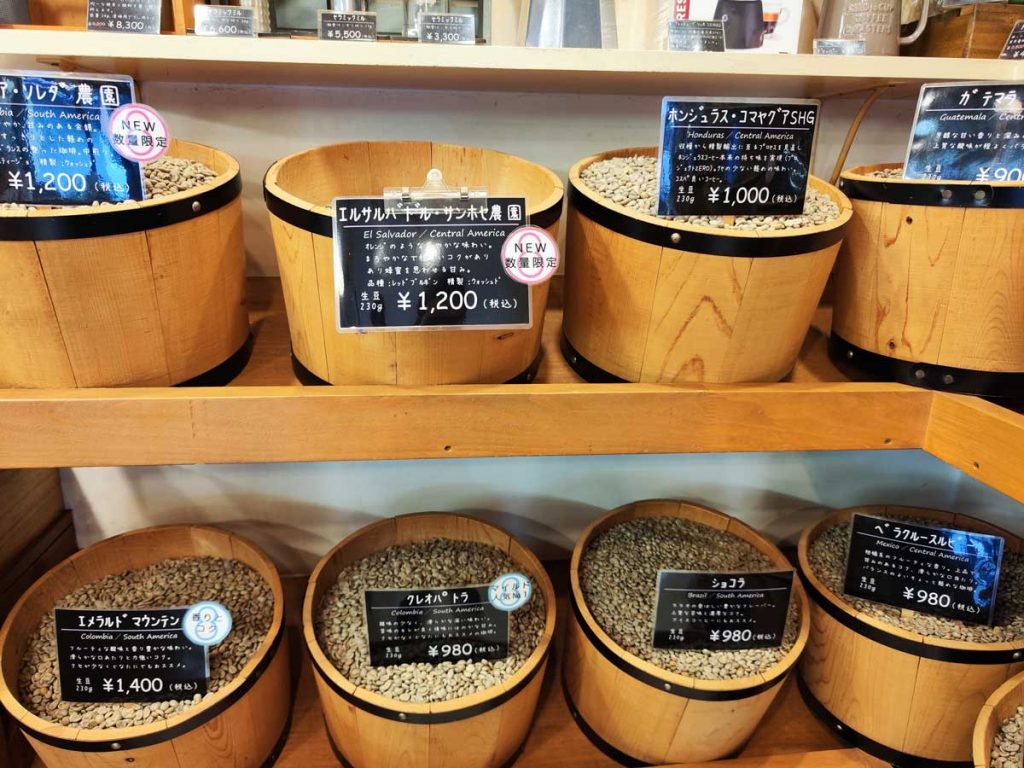
My exploration eventually extended beyond home brewing to the vibrant café and roastery scene. In addition to large coffee chains, Japan boasts numerous independent coffee shops and roasteries. These range from nostalgic Showa-era “kissaten” to sleek, modern specialty roasters. Though premium-priced, these cafés offer expertly brewed coffee in thoughtfully designed spaces, making them ideal for socializing, unwinding, or even tackling university assignments in a fresh setting.
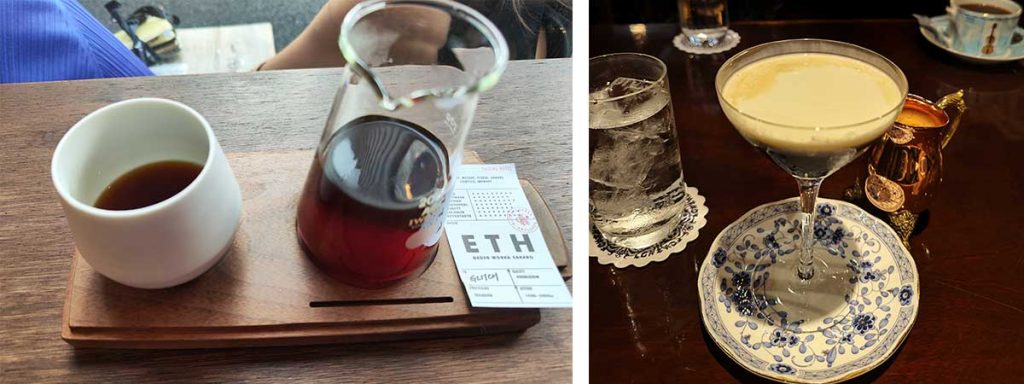
My coffee adventures didn’t stop at city cafés; they also led me to university life. Through conversations, I discovered many coffee enthusiasts within the Institute of Science Tokyo and at other universities in the Kanto area. Our university even has its own coffee club, TECHSPRESSO, which I’ve actively joined. During this year’s Koudaisai (our university’s Ookayama Campus Festival), the club sold hand-drip coffee, and I had the chance to try it. It was excellent, and the long lines proved how popular it was. The club now holds regular meetings at Taki Plaza, a student space equipped with a kitchen, where members brew coffee, exchange brewing tips, and discuss the nuances of different beans.
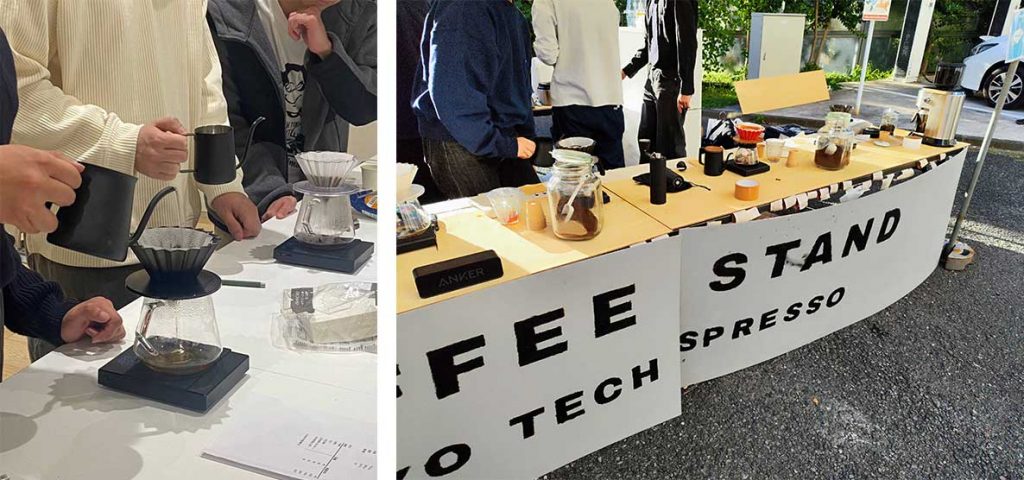
I’ve also connected with coffee clubs at other universities around Tokyo, which has been a great way to meet people and expand my knowledge. One unexpected perk was receiving free tickets to the Specialty Coffee Association of Japan (SCAJ) 2024 World Specialty Coffee Conference and Exhibition at Tokyo Big Sight. The event was a coffee lover’s dream, featuring pop-up stores from cafés and roasteries, equipment manufacturers, and representatives from coffee-producing regions like Africa, China, Vietnam, and Thailand. Sampling coffee from so many sources was an unforgettable experience.

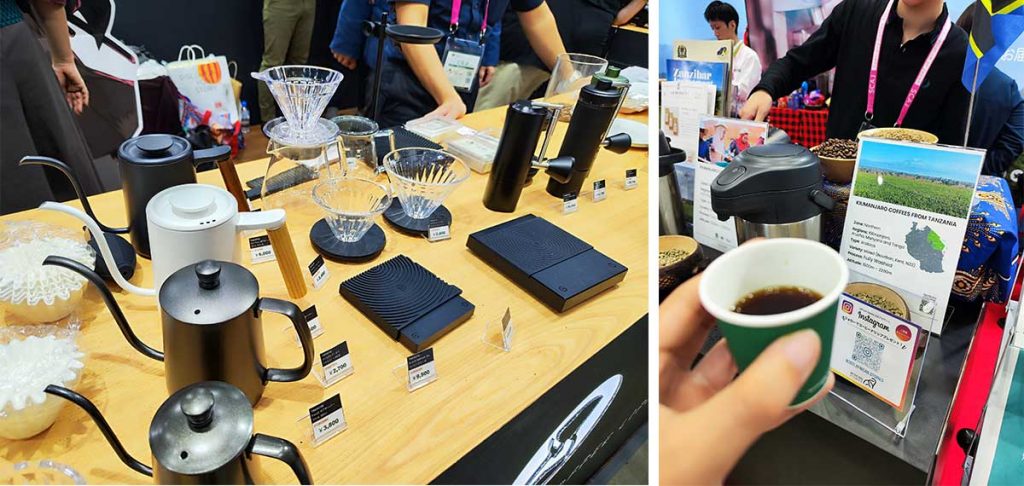
In conclusion, I can confidently say that coffee is a hobby that makes my life in Japan much more colorful and exciting. Every time I wake up, I look forward to a sip of coffee to start my day. In the lazy afternoons, a sip of coffee helps me unwind from a day of classes and work. Through these sips of coffee, I have been able to build new relationships and find new communities. I believe that the act of enjoying coffee and finding fellow coffee drinkers transcends cultural and national boundaries. As an international student, I am grateful to be able to explore my love of coffee here in Japan, thousands of kilometers away from home.
TECHSPRESSOInstagram: @techspresso_coffee
- Instagram: @techspresso_coffee_stand
- Link: https://www.instagram.com/techspresso_coffee_stand/
